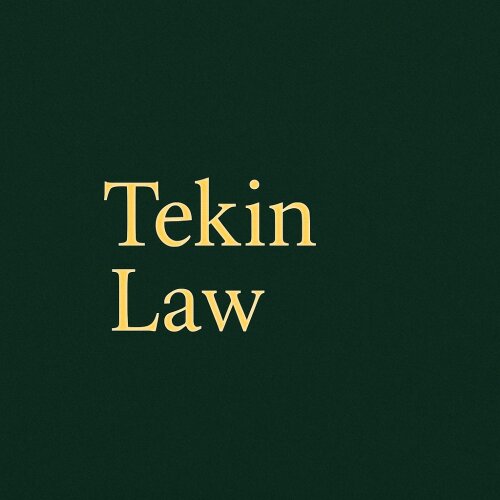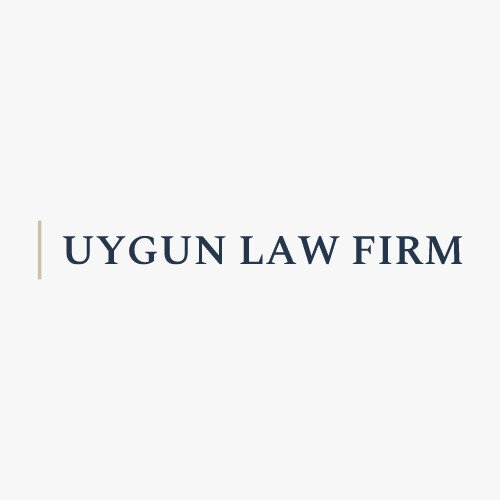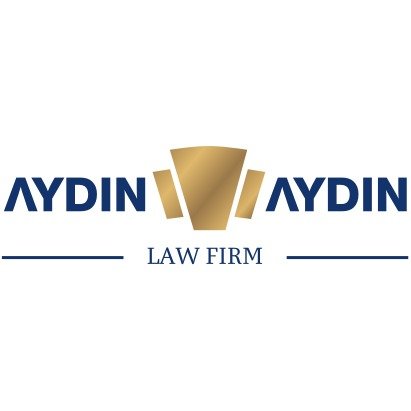Best Sustainable Finance Lawyers in Istanbul
Share your needs with us, get contacted by law firms.
Free. Takes 2 min.
List of the best lawyers in Istanbul, Turkey
Legal guides written by Tekin Law Firm:
- Arbitration in Turkey
About Sustainable Finance Law in Istanbul, Turkey
Sustainable Finance refers to financial practices and investment decisions that consider not only financial returns but also social, environmental, and governance (ESG) factors. In Istanbul, this area has gained significant importance due to Turkey's commitments to international sustainability standards, climate action, and green economic growth. The city, as Turkey's financial hub, has seen increasing activity in the issuance of green bonds, sustainable loans, and implementation of ESG criteria in both the private and public sectors. Sustainable Finance law in Istanbul addresses how these financial activities are regulated, how sustainability disclosures are made, and how investors and institutions comply with local and international standards.
Why You May Need a Lawyer
Navigating the field of Sustainable Finance in Istanbul can be complex due to evolving regulations and multiple legal frameworks. Here are some common situations where you might need legal help:
- Structuring or participating in green bonds, climate bonds, or other sustainable finance products
- Adhering to ESG disclosure requirements for listed or private companies
- Conducting due diligence on sustainable investments or mergers and acquisitions with ESG implications
- Ensuring compliance with local and international sustainable finance standards and taxonomies
- Responding to regulatory investigations or audits concerning sustainability claims
- Drafting and negotiating contracts for renewable energy, waste management, or green infrastructure projects
- Resolving disputes related to sustainability projects or allegations of greenwashing
Local Laws Overview
Turkey has taken steps to align its financial sector with global trends in sustainability. In Istanbul, these core legal frameworks and initiatives are especially relevant:
- Capital Markets Board (CMB) Guidelines - The CMB has guidelines for sustainability principles compliance in publicly traded companies, including ESG reporting requirements.
- Banking Regulations - Turkey’s Banking Regulation and Supervision Agency (BDDK) enforces responsible lending and environmental risk assessments for banks operating in Istanbul.
- Green Bond and Sukuk Issuance Rules - The CMB has issued specific guidelines for the issuance and reporting of green bonds and green sukuk instruments.
- Sustainable Banking Principles - Several Turkish banks headquartered in Istanbul have adopted the United Nations’ Principles for Responsible Banking and are subject to internal and external sustainability audits.
- Climate Law Developments - Turkey is taking steps toward passing a comprehensive climate law that will impact financial instruments and corporate responsibilities in sustainability reporting and carbon markets.
- EU Alignment and Cross-Border Activity - With Istanbul’s position as a bridge to European markets, Turkish laws are increasingly converging with the EU Sustainable Finance Disclosure Regulation (SFDR) and Taxonomy Regulation, especially for entities operating or raising capital in both jurisdictions.
Given the ongoing regulatory developments, compliance and risk management require close monitoring of both local and international legal frameworks.
Frequently Asked Questions
What is Sustainable Finance?
Sustainable Finance is financial activity that incorporates environmental, social, and governance (ESG) considerations into investment decisions, risk management, and project financing, aiming for a positive impact on society and the environment.
Which financial products are considered sustainable in Istanbul?
Products include green bonds, green sukuk, sustainability-linked loans, ESG-focused investment funds, and financing arrangements for renewable energy and climate adaptation projects.
Are ESG disclosures mandatory for companies in Istanbul?
Listed companies are subject to CMB sustainability compliance principles and must provide ESG disclosures in line with evolving national and, in some cases, international frameworks.
How are green bonds regulated in Turkey?
Green bonds are regulated by the Capital Markets Board, which provides a framework for their issuance, use of proceeds, eligibility of projects, and reporting to ensure transparency and prevent greenwashing.
How can I verify if my investment complies with sustainable finance standards?
Legal professionals can help by conducting due diligence based on Turkish regulations, international standards, and industry best practices to verify compliance and the authenticity of sustainability claims.
What is greenwashing, and why is it a concern?
Greenwashing is the misrepresentation of financial products or activities as environmentally sustainable when they do not meet required standards. It is a concern due to legal repercussions, reputational damage, and potential regulatory penalties.
Can foreign investors participate in sustainable finance activities in Turkey?
Yes, foreign investors can participate in green bonds, funds, and projects, provided they comply with Turkish regulations and, where applicable, international standards relied upon in cross-border financing.
What are the main government agencies overseeing sustainable finance?
The Capital Markets Board (CMB), Banking Regulation and Supervision Agency (BDDK), and the Ministry of Treasury and Finance are leading authorities regulating and promoting sustainable finance activities.
Is there a national taxonomy for sustainable economic activities?
Turkey is in the process of developing its own sustainability taxonomy, influenced by EU standards, which will define which activities qualify as sustainable for regulatory and investment purposes.
How can a lawyer help with sustainable finance in Istanbul?
Lawyers advise on compliance, assist with structuring sustainable finance transactions, draft and review relevant disclosures, conduct due diligence, and represent clients in disputes or regulatory matters.
Additional Resources
If you are considering legal advice or further research on sustainable finance in Istanbul, you may find the following resources helpful:
- Capital Markets Board of Turkey (CMB) - Oversees listed company regulations, ESG disclosure requirements, and green bond frameworks.
- Banking Regulation and Supervision Agency (BDDK) - Regulates financial institutions and sustainable banking principles.
- Turkish Industry and Business Association (TÜSİAD) - Publishes sustainability reports and organizes sustainability initiatives.
- Ministry of Treasury and Finance - Issues national guidelines and reports on Turkey's sustainable finance strategy.
- Istanbul Financial Center - Aims to position Istanbul as a regional hub for sustainable finance and hosts industry-related events.
- Local Law Firms with ESG and Sustainability Practices - Offer tailored consulting, compliance, and legal representation services in sustainable finance matters.
Next Steps
If you intend to get involved with sustainable finance in Istanbul or require legal assistance:
- Identify your specific legal needs such as transaction structuring, ESG reporting, compliance, or dispute resolution.
- Gather relevant documentation such as company annual reports, investment plans, existing compliance policies, and regulatory correspondence.
- Consult a law firm or legal practitioner experienced in sustainable finance law, ESG criteria, and local regulations.
- Prepare to discuss your objectives, regulatory concerns, and the international aspects of your activities if relevant.
- Stay informed about changes in local and EU-aligned sustainability regulations to ensure ongoing compliance.
Being proactive and seeking specialized legal advice will help safeguard your financial activities and ensure alignment with both local and global standards for sustainable finance in Istanbul.
Lawzana helps you find the best lawyers and law firms in Istanbul through a curated and pre-screened list of qualified legal professionals. Our platform offers rankings and detailed profiles of attorneys and law firms, allowing you to compare based on practice areas, including Sustainable Finance, experience, and client feedback.
Each profile includes a description of the firm's areas of practice, client reviews, team members and partners, year of establishment, spoken languages, office locations, contact information, social media presence, and any published articles or resources. Most firms on our platform speak English and are experienced in both local and international legal matters.
Get a quote from top-rated law firms in Istanbul, Turkey — quickly, securely, and without unnecessary hassle.
Disclaimer:
The information provided on this page is for general informational purposes only and does not constitute legal advice. While we strive to ensure the accuracy and relevance of the content, legal information may change over time, and interpretations of the law can vary. You should always consult with a qualified legal professional for advice specific to your situation.
We disclaim all liability for actions taken or not taken based on the content of this page. If you believe any information is incorrect or outdated, please contact us, and we will review and update it where appropriate.

















